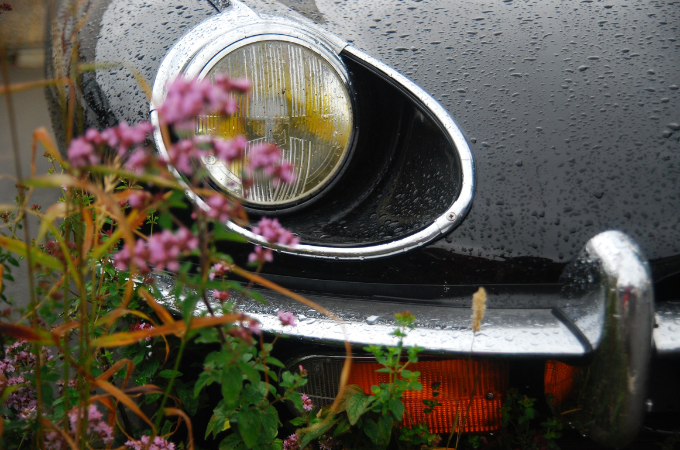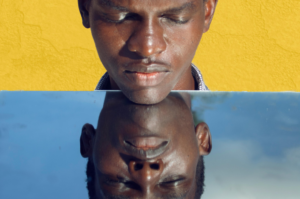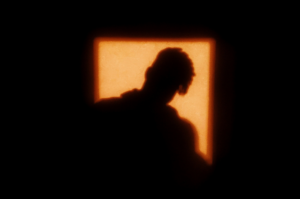
Everyone is a story.
You learn this the day you become an Uber driver, and your life becomes an intersecting point for people. It makes you realise how tiny your life is and how everyone is a supporting character in everyone else’s story. For each person who sits in your car, you are a faceless entity that moves them from point A to B. They would forget you in less than five minutes after they arrive, and that would be it.
Your phone buzzes. It’s a text from Uber, “Congratulations on concluding one thousand trips.” You look at the last passenger, a woman in her early fifties who had the aura of someone who had lived a full life in her youth, but age and time had subdued her. Now she was on her way to the church. You wonder if it is in hopes of making up for whatever she had done in her past. Maybe you judged her wrong, and she had always been a churchie. One of those people who needed something to hold on to and believe in. Yours is love, and it has always driven you to extremes; maybe hers is God.
You think of the many others who have sat in your car. The ones who enter full of life asking to turn the music to the loudest. The ones who mellow the car with the slouch on their shoulder and sadness in their heart. The ones who are aloof like a crossword puzzle and your least favourite, the ones who wouldn’t shut up because they were trying to seem cool, interesting, or simply show that their lives were better than yours, an ordinary driver’s. One thing was sure, they didn’t know your story.
Love or love lost.
Young and in love, they remind you of the days you think of in yellow. They remind you of an old you, one that you had shed like old skin to become this joyless person. You see them through the front mirror, and the inscription says, ‘objects in mirror are closer than they appear.’ You wonder if they are less in love than they appear.
You hear them giggle after they tell you the address to where they are going, and you drive off. It’s a park. You imagine the day they would have. You imagine her as you. Both of you on a bench. Him sitting, you with your head on his thighs as you read from an Akwaeke Emezi book, him listening to a song on his phone. You are the kind of couple who can enjoy each other’s company in total silence. It’s the perfect day with thick chunky clouds in the sky, surrounded by oceans of blue. The sun plays hide and seek with the clouds, peeking from time to time to show its powerful rays.
“Excuse me, ma,” her voice interrupts your thought. “Please, can you change the channel to Soundcity FM?”
“Sure,” you respond with a smile through the mirror and nod. You are always polite. She smiles back as she sinks back into his arms, he kisses her forehead, and a singer you don’t know fills the car. His arms around her feel like a promise, and she sits in the warmth of it.
The ride to the park is short. They alight and make their payment. Hands intertwined, they walk away. You wonder if they would have the day you imagined or if it would be chaotic with lots of fights and hurt. Nothing was ever really as it appears. You drive away.
One God.
If you could give medals to your passengers, you’d give Abdul ‘best passenger’ gold. He smiles at you when he enters, smells like a hug, and you both have a good time on the short drive. He is one of the people you meet who leave you with questions.
He enters the car, sits in front, and wears his seatbelt while saying good afternoon. As soon as the belt is clasped, he looks up with a smile, “I hope you have an Aux cord because I like to give people an experience with my music.”
You like him immediately. There is no pretence stiffening his shoulders. He sees the world and people as he thinks they should be. You laugh and say, “You’re in luck,” as you pass him the old, tangled cable.
“Wow us, DJ Abdul,” you say the name from the app while subtly asking if it is his name. He confirms. The day is a Muslim holiday, and he is dressed in his sheddah kaftan, a fabric that many call waterproof. It’s weird because the material is literally anti-absorbent. You wonder if the logic behind it is so you don’t have to wash it or so you don’t ever get wet when you get caught in the rain even though it’ll be a shame that your head and shoe won’t be protected by the almighty sheddah.
He plays a song by French Montana, “Famous”. It’s a song you like because you once loved a boy who was as popular as the sun. You were always envious that you shared him with everyone else, and he would never really be yours. Frank Sinatra plays next, “That’s Life”, a song you think should be on everyone’s playlist because it’s a reminder that life is complex. You are careful not to get too familiar by singing along, so you bump your head slowly while Abdul does the singing.
He cues in another song. By the third and fourth song, you begin to analyse him based on his music choice . You can tell that he’s emotional, and you wonder if he has ever had to feel ashamed about it since Nigerian men would rather do the circling motion around their heads, ‘tufiakwa’ because it’ll only be over their dead bodies that they come off as emotional. He asks you if you would go to visit any of your Muslim friends to eat Sallah meat, as most people do. You laugh and say no. You would just turn in early and rest.
He says okay, and asks you, “Do you think Christians get a free pass from their God if they sin on days like this?”
You do not know how to answer the question. So, you ignore it and look to the road. Long after you drop him, you wonder if really the Christian God is more upset or merciful on a day when his other creations worship and celebrate another fervently and vice versa. But more so, you wonder if religion is just a farce, and all the gods are just one God seen through different lenses.
An obnoxious old man.
Age does not equate to wisdom or, in his case, good manners. This is the first thing you think when you meet him. He enters your car with a fat Cuban cigar in hand and the foulest attitude an old grump could have. He ignores your greeting and says, “turn down that noise”. He takes a long drag of his Cuban, puffing out thick smoke. It reminds you of dark days and the days you cooked on firewood.
You cannot profile him because, at first glance, he looks like he is one of the old money Abuja men. If that were the case, it would mean he has a fleet of cars and drivers who can drive him around town. But here he was, hailing a cab like a common man.
You are furious at him. He yells when you accelerate above 60km/h and grumbles when you overtake. This is by far one of your most unpleasant trips. The destination on the map says Asokoro Street and the trip is two hours long due to congestion ahead. You wonder where he’s going and if he’ll be welcomed at all.
Within all this, you think of your father and how nothing you could ever do was enough. You were never going to amount to anything. You were always going to be the mistake he made. This shaped your life and your relationship with men. Always chasing their love and approval. They smelt your inferiority complex like sharks did blood from miles away, and they played it to their advantage. And even when you emptied yourself to love them, you were never good enough. There was always Shade with better hair, Halima with bigger boobs, or Sairia who was ugly but “made me happy”.
The car was silent save for the sounds of honks from angry Nigerian drivers who used their car horns like musical instruments and greeting devices, causing harmonic chaos.
“Do you have any Tony Allen?” he asks.
“No, sir,” you reply, trying not to express your irritation.
“Ah, I didn’t expect you to. You hardly look like you have great taste in music. I’ll survive. You know, he is one great artist.”
You try not to cuss under your breath, so you just drive. From the side of your eye, he hands you the cigar. “Care for some?”
“No, thank you,” you respond rather coldly, wondering why he offered you and if he was mocking you. He takes it back to his mouth and puffs. You both ride in silence. You wonder why he is this bitter.
The map indicates that your destination is in two minutes. You couldn’t have been happier. He asks you to drop him near a shop. This is not the precise destination, but he says he wants to walk the rest of the way. You park, and he goes out. He looks back at you and says, “I wonder how you wound up a driver; you’re not so good at it, just like most women drivers.”
You get so upset that you want to ram the car into him, but you turn and drive off. You get to a traffic light and see a piece of paper on the seat. You pick it. It’s a prescription and a doctor’s note. The one thing that catches your attention is the Corticosteroids, the same drug your father took when his lungs started to fail due to his smoking.
You wonder if the man is dying as you drive back in an attempt to find him even though you hate him. but he’s gone. You try to see if there’s a hospital around, but there’s none. You sigh as you drive off, a tear slipping out the side of your face. You wonder if ghosts exist and to what length your father would go to ruin your day and possibly your life.
The chase.
A painting of your childhood looks like this; two kids, a verbally abusive father and a house that cried when rain fell. The absence of love in your life wasn’t apparent because how do you miss that which you’ve never really known? Your mother was a passive character in your story, and it wasn’t till you turned 18 and left home that you realised she was human and all the choices she made, like leaving you, were because she had her own story. Birthing you and Dyep was only a subplot she didn’t plan, and once she got that out the way, she carried on from where she left. Your father, on the other hand, was so broken when she left that he became a shadow of a man. A walking chimney, puffing out thick clouds of smoke, complaining and scolding till he withered and died. You wonder if his was the story of the man who never lived.
Everyone thinks you’re just a driver. But you’re a woman on a mission. You found your mum, or she found you. 22 years later, you realise that you still need her love. Maybe she can fix you with a hug or a home-cooked meal. She asked you to come and meet her in her new country. You don’t hate her, and you can’t even explain why. So, you’ve worked twice as hard to make money. Every trip you complete is a day closer to meeting her. By your estimation, you have hundred more trips and a hundred more stories to go. You would do whatever it takes.
Photo by Alain Willemart on Unsplash










Adesiyan October 06, 2022 04:44
I was engrossed till the end.A mesmerising read!